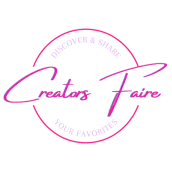THE GENERATION-DEFINING TEEN CLASSIC RETURNS TO THEATERS NATIONWIDE FOR A SPECIAL TWO-DAY THEATRICAL EVENT ON SEPTEMBER 7 AND 10
Universal City, Calif., August 16, 2025 — Universal Pictures is proud to celebrate the 40 anniversary of The Breakfast Club, John Hughes’ groundbreaking coming-of-age masterpiece that redefined the teen genre and became one of the most enduring works of American cinema. Returning to theaters nationwide on September 7 and 10, this special two-day engagement invites audiences to rediscover the film’s emotional impact and timeless relevance, just in time for the back-to-school season. Advance tickets are available now.
Released on February 15, 1985, The Breakfast Club broke new ground by portraying the teenage experience with a level of honesty and emotional depth that had rarely been seen on screen. Set at a suburban Chicago high school, the film follows five students from vastly different cliques who arrive for a Saturday detention and discover that the labels assigned to them do not define who they are.
Over the course of one day, Claire the princess (Molly Ringwald), Andrew the athlete (Emilio Estevez), Brian the brain (Anthony Michael Hall), Allison the basket case (Ally Sheedy) and John the criminal (Judd Nelson) break through their social barriers and reveal the private struggles beneath their public identities. Under the wary eye of Vice Principal Vernon (Paul Gleason) —and the side-eye observations of custodian Carl (John Kapelos)—they begin as strangers and leave with a deeper understanding of themselves and each other.
The film was the second directorial effort from writer-director John Hughes, who had made his debut the year prior with Universal Pictures’ Sixteen Candles. With The Breakfast Club, Hughes created an intimate and emotionally honest portrait of adolescence that reflected the inner lives of teenagers with rare sensitivity. Shot for just $1 million at a shuttered high school in Illinois, the film centered on character, conversation and vulnerability rather than spectacle. Hughes encouraged his cast to improvise and contribute their own insights, resulting in performances that felt unscripted and deeply personal.
Upon its release, The Breakfast Club became a breakout hit and the 13 highest-grossing film of the year. But beyond its commercial success, it transformed the landscape of teen storytelling. It launched the careers of its young ensemble, ushered in the Brat Pack era, and struck a generational chord with its portrayal of alienation, identity and the desire to be seen.
Hughes went on to become one of the most prolific and influential filmmakers of the 1980s and 1990s. His body of work includes Ferris Bueller’s Day Off, Planes, Trains & Automobiles, Uncle Buck, Pretty in Pink and Home Alone. Yet it was The Breakfast Club that most powerfully captured his gift for writing characters who felt flawed, familiar and human. No other filmmaker of his era gave teenagers such permission to speak or allowed silence to carry so much emotional weight.
“The Breakfast Club is one of the great films about identity, alienation, and connection,” said Jim Orr, President of Domestic Theatrical Distribution for Universal Pictures. “The film’s honesty, humor, and humanity continue to connect with audiences of all ages. We’re honored to bring it back to theaters so that a new generation can experience its power on the big screen.”
The film’s influence can be seen in the decades of storytelling that followed, from Boyz n the Hood and Dazed and Confused to Eighth Grade, Lady Bird and Freaks and Geeks. It helped reshape how young people were portrayed in film and television, proving that stories about adolescence could carry the same nuance and complexity as any adult drama.
The legacy of The Breakfast Club extends far beyond the screen. Its now-iconic poster, shot by celebrated portrait photographer Annie Leibovitz, presented the characters not as polished archetypes but as complex individuals. The film’s theme song, Simple Minds’ ‘Don’t You (Forget About Me),’ became a chart-topping hit and a cultural landmark. The film’s dialogue entered the lexicon and remains quoted, referenced and revisited today.
The 40 anniversary re-release follows a successful 30 anniversary presentation in 2015, when a newly remastered edition played in more than 400 theaters across North America following its premiere at South by Southwest. That same year, Entertainment Weekly named The Breakfast Club the number one high school film of all time. In 2016, the Library of Congress selected the film for preservation in the National Film Registry, citing its cultural, historical and aesthetic significance. Earlier this year, the film’s cast reunited at the Chicago Comic & Entertainment Expo for a panel reflecting on the making of the film and its lasting impact.
The Breakfast Club was produced by Ned Tanen and John Hughes. The film features cinematography by Emmy winner Thomas Del Ruth, editing by Academy Award nominee Dede Allen, production design by Academy Award nominee John W. Corso, and an original score by Academy Award winner Keith Forsey.
Advance tickets are available now and can be purchased here.
